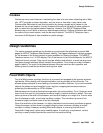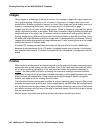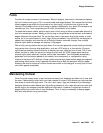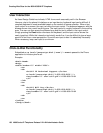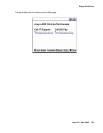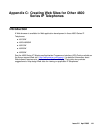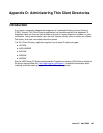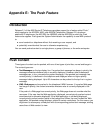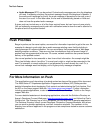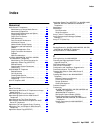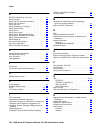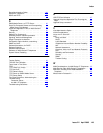
Issue 2.2 April 2005 145
Appendix E: The Push Feature
Introduction
Release 2.1 of the 4600 Series IP Telephones provides support for a feature called “Push,”
which applies to the 4610SW, 4620, and 4620SW Telephones. Release 2.2 introduces
additional IP telephones, the 4621SW, the 4622SW, and the 4625SW, to which the Push
feature also applies. Push gives the System Administrator the capability to use WML protocol
to:
● send content to a telephone without first receiving a user request, and
● potentially override what the user is otherwise experiencing.
You can send pushed content to a single phone, a group of phones, or the entire enterprise.
Push Content
Three types of content can be pushed, with one of two types of priorities, normal and barge-in.
The content types are:
● Text Messages on the top display line. If a pushed text message has barge-in priority, the
message overwrites whatever else is currently displayed. However, other subsequent
messages can, in turn, overwrite the pushed message. If the pushed text message has
normal priority, it is buffered in the telephone and displayed when no higher priority
message is being displayed. Up to 56 characters can be pushed to the top line in a given
message.
● WML Web pages can be pushed to the telephone’s WML browser. If a pushed Web page
has barge-in priority, the content overwrites whatever else is currently displayed to the
user.
If the push of a Web page has normal priority, the Web page does not override what the
user sees. If the user has the Web application displayed, normal-priority pushed content
overrides what is otherwise displayed. If the Web application is not being displayed,
normal-priority pushed content loads in the background. When the user invokes the Web
application, the pushed content displays, subject to certain restrictions. For this reason, you
might want to accompany a Web push with a corresponding pushed text message, alerting
users there is Web content to view.



